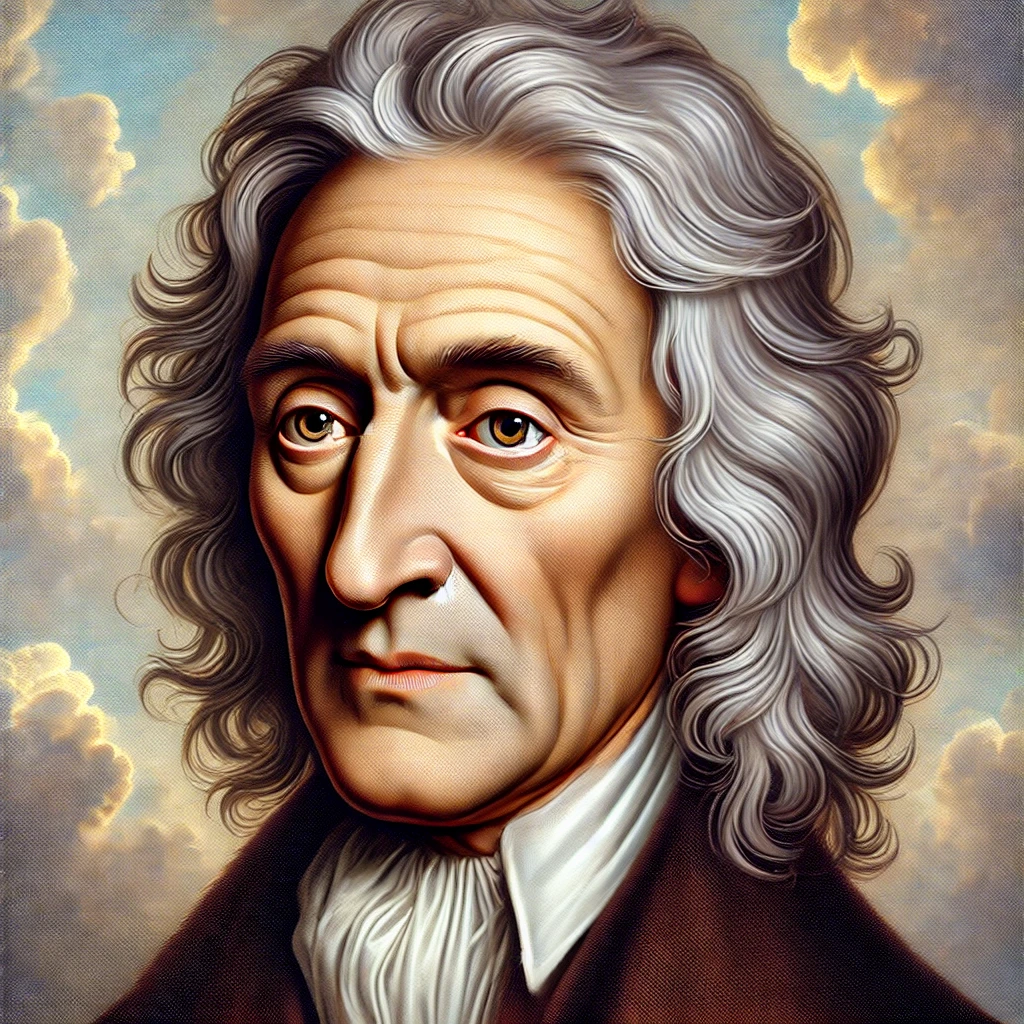John Locke

Birth Date: 1632-08-29
Death Date: 1704-10-28
Place of Birth: England
Place of Death: England
Century: 17th
Region: Europe
"All mankind... being all equal and independent, no one ought to harm another in his life, health, liberty, or possessions."
John Locke was a philosopher from England. He believed that knowledge comes from experience and observation, not just from what others tell us. He also thought that governments should protect people's basic rights and that people should have a say in their government.
Locke believed that our experiences shape what we know and that governments should be based on the agreement of the people. He emphasized that everyone has rights, like the right to own property, and that these should be protected by the law.
Two Treatises of Government: Locke argues for the idea of a social contract and the natural rights of individuals, including life, liberty, and property. An Essay Concerning Human Understanding: Locke explores the nature of human knowledge and understanding, emphasizing that knowledge is derived from experience.
John Locke was influenced by scientists and thinkers like Isaac Newton and René Descartes. He admired how they focused on using reason and evidence to understand the world.
Locke’s ideas about natural rights and government influenced important documents like the U.S. Constitution. His thoughts also inspired other philosophers, including Thomas Jefferson.
Locke's idea of natural rights was questioned by people who believed in stronger government control. He was also criticized for his involvement with companies that traded slaves.
Thomas Hobbes: Hobbes disagreed with Locke’s idea that people are naturally good and can govern themselves.
Locke’s ideas about human rights, such as life, liberty, and property, have shaped modern democracies. His belief that people should have a voice in their government is still important today.
John Locke was heavily involved in politics. He helped to write the constitution for the American colony of Carolina. Even though he supported personal freedom, he was also connected to organizations involved in the slave trade.





